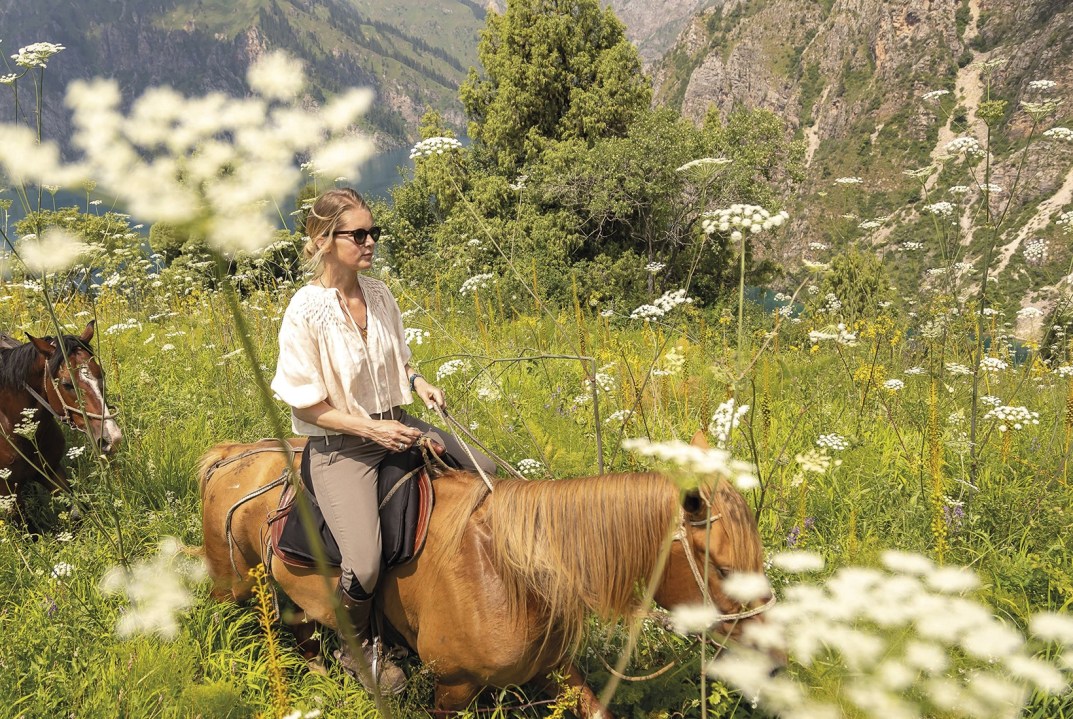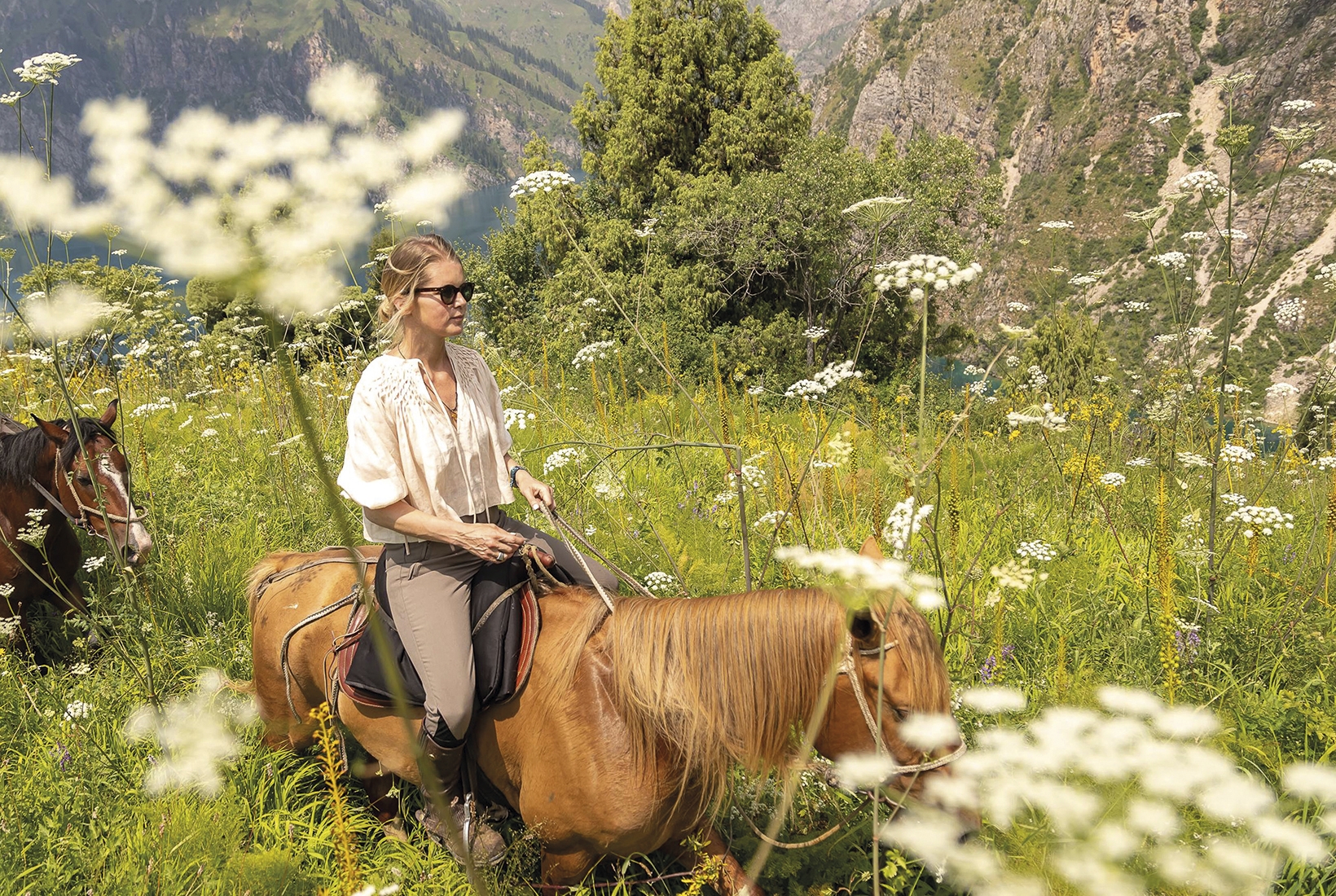There can’t be many programmes that bring to mind quotations from both Henry Kissinger and Boney M., but BBC2’s The Countess and the Russian Billionaire was one of them. While Kissinger’s idea that ‘power is the ultimate aphrodisiac’ may be a little out of fashion in the #MeToo age, it was hard not to think it played a part in the eye-popping events that Wednesday’s documentary laid out with some relish. As for Boney M., rarely has ‘Oh, those Russians’ from ‘Rasputin’ felt so penetratingly insightful.
The programme began filming in 2015, with the apparent aim of providing a ringside seat at a fight between an excitingly wealthy British-based couple and the Russian government. The makers, though, mustn’t have been able to believe their luck at what happened over the next few years.
With such an extraordinary tale to tell, this couldn’t really go wrong – although it sometimes did its best
When we first met Countess Alexandra Tolstoy — the impeccably English daughter of an émigré family — she was living with her three children in two neighbouring Chelsea townhouses, where she showed us her extensive shoe collection and a carefully filed handbag cupboard (the filing, of course, done by a housekeeper). She also recalled how romantic it had been to start a relationship with the children’s father, Sergei Pugachev, ‘one of the most important and influential people in the whole of Russia’. ‘It was incredible,’ she said wistfully. ‘I used to go and stay in the George V in Paris and he would give me his credit card to go shopping.’
At this stage, Alexandra was sticking to the line that she still loved Sergei. Even so, the relationship already had its difficulties — not least that, having failed to repay a $1 billion loan to the Russian government for bailing out his bank, Sergei had understandably felt in danger in London and was holed up alone at one of his properties in France. His plan was that the rest of the family would join him there, but, having paid a visit, Alexandra decided she couldn’t stay permanently — on the now somewhat ironic grounds that life in a huge château in the Côte d’Azur with a large staff of servants would be ‘very isolating’. (‘Sergei hasn’t been out of the house for two weeks,’ she told us wonderingly.)
Once back in Chelsea, however, she explained there were other reasons too. While she was in the château, Sergei had attacked her and threatened all manner of revenge if she and the children left. Now she wasn’t sure whether to be more scared of him or of London’s Russian spooks — and, seeing as Sergei had duly cut her off without a kopek, there was also the question of how to earn money.
In one successful if ill-advised attempt, she agreed to appear on state-owned Russian television to tell her story in front of a studio audience (remember those?). Given that the country’s TV news routinely referred to ‘odious fugitive banker Sergei Pugachev’, she must have expected an easy ride. But after she’d had her say, the show suddenly went live to Sergei in France to ask him if he’d ever loved her. ‘It’s difficult to say now,’ he replied icily. ‘We had a relationship of sorts.’ As the camera zoomed in on Alexandra’s tears, he added that she was ‘of course not any sort of countess’ and that ‘her only desire was to become rich’.
With such an extraordinary tale to tell, The Countess and the Russian Billionaire couldn’t really go wrong — although it sometimes did its best, by trying to reduce the complexities of what we saw to a series of more viewer-friendly clichés. The introduction spoke of an ‘English rose living a fairy tale’ with ‘the man of her dreams’ until it all came ‘crashing down’. And this broad-brush characterisation continued — admittedly with Alexandra’s help — for much of the documentary, including at the end when her return to her old travel business was presented as a straightforward case of British pluck triumphing over adversity and dastardly foreigners. Fortunately, for all the programme’s efforts, the story itself still felt a lot more ambivalent, weird and just plain interesting than that.
Feature-length versions of sitcoms have a famously mixed track record. Red Dwarf: The Promised Land (Dave, Thursday), though, was an unalloyed delight: not only a joyous watch in itself, but, as filmed before an enthusiastic studio audience a few months ago, a touching celebration of how deservedly well loved this strange mix of broad gags and thoughtful, twisting plots remains. The jokes, naturally, came thick and fast, delivered by a cast that by now are utterly tight and completely relaxed at the same time. As ever, too, there was that melancholy underlying awareness of the characters’ loneliness — and an unapologetic yet never solemn engagement with some serious themes, which in this case included the theological. It was also great to have Holly back.







Comments